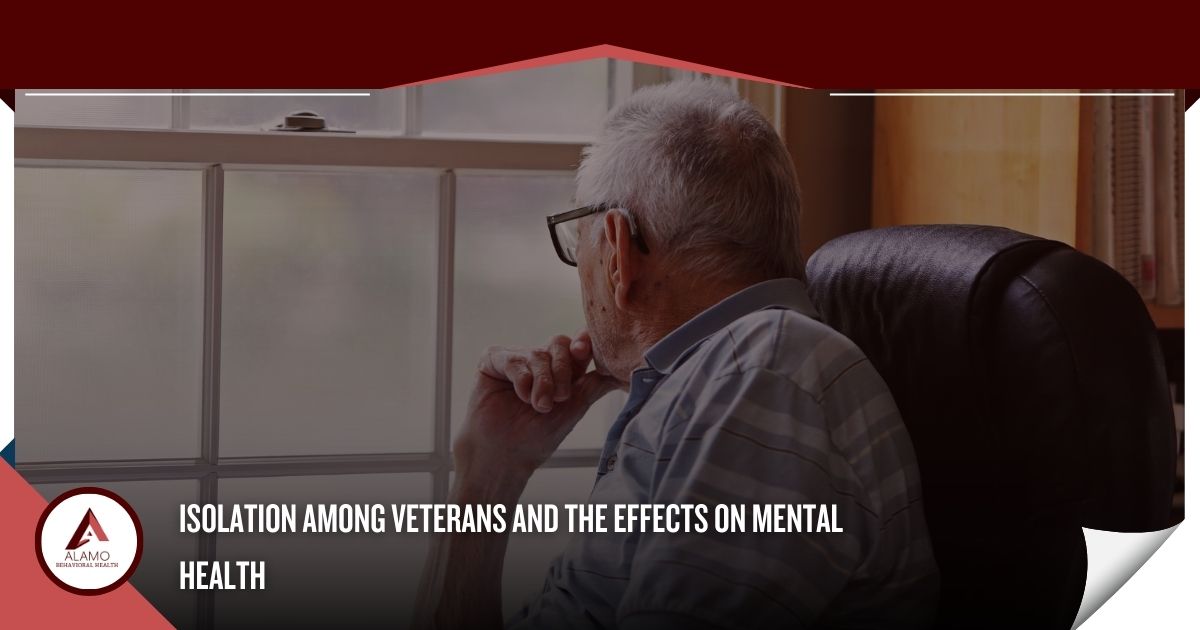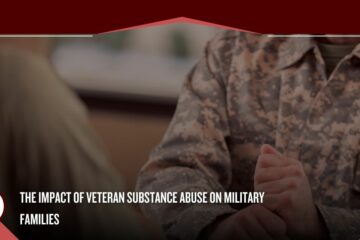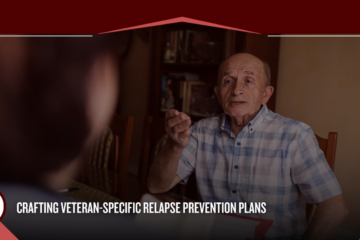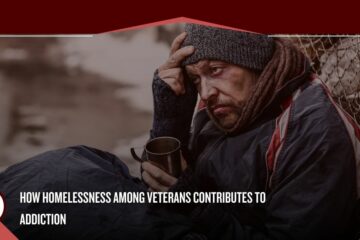
Veterans face significant challenges while reintegrating into civilian life. Many struggle with social isolation.
Social isolation can affect every part of a veteran’s life. Living in isolation or lacking connection to others can take a toll on their mental and physical health. It puts people at risk of depression, substance abuse, and other life-altering conditions.
This article will explore isolation among veterans. You will learn to identify social isolation and where to seek treatment if needed.
Reach out to the Alamo Behavioral Health specialists now to explore our specialized veterans treatment programs. Our intake staff can answer questions and verify insurance. They will connect you with the programs you need to begin recovering from mental health conditions or addiction.
What is Isolation?
When some people imagine what it means to be isolated, they might picture living on a desert island. However, isolation is not limited to times when people are physically separate from others. It can occur to anyone, even when people are living in busy cities or towns.
Social isolation means that you do not have a meaningful or robust social network. People who live in social isolation often lack meaningful connections to others.
Socially isolated people may have many “surface-level” acquaintances but do not have deeper relationships with people.
People may feel isolated in many situations, including:
- Moving to a new city
- Leaving a job
- After the breakup of a relationship
- Starting college
- After having a baby
- Returning to civilian life after military service
Social isolation does not reflect one’s character or ability to have good relationships. People may become isolated during periods of transition.
Recognizing social isolation is the first step toward recovering from it. Here are some signs of social isolation:
- Feeling disconnected from others
- Not having meaningful relationships with others
- Having limited social contact with others
- Poor self-care
- Bad sleep
- Having a passive attitude
- Aggression or anger
People who live in isolation may have unhealthy patterns of eating, sleeping, substance abuse, and other activities. These can contribute to increased risk for severe, sometimes life-threatening conditions.
Veterans and Social Isolation: A Serious Problem
Veterans have unique challenges and stressors as they adjust to civilian life. Military service provides support, purpose, and structure. Many veterans struggle with loneliness, depression, and isolation as they re-integrate into a “normal” daily routine.
Veterans may return home and find it challenging to connect with others. Civilians may not be able to understand their experiences. They may feel disconnected from their families or coworkers.
In some cases, veterans may have a tough time finding work or accessing health care after returning home. They may also find that over time, they do not talk with others or spend most of their time alone.
Post-traumatic stress disorder (PTSD) can also contribute to loneliness and isolation. Many veterans have long-term symptoms of trauma, including:
- Flashbacks
- Anxiety
- Depression
- Low self-esteem
- Avoidance of situations that remind them of the traumatic event
Veterans with PTSD may avoid crowded areas or social events. They may struggle with depression and feelings of low self-worth. These and other PTSD symptoms can increase the risk of social isolation.
Social isolation can keep veterans from living full, healthy lives. It can impair functioning and contribute to a higher risk of serious health conditions.
Veterans living in social isolation must seek treatment and support so they can improve their functioning and feel better.
Tips for Managing Social Isolation
There are many steps you can take to reduce social isolation. If you or a veteran you love struggles with isolation or other mental health conditions, you are not alone. Reach out to the team at Alamo Behavioral Health to learn about our treatment programs.
Veterans Affairs offers many suggestions to help veterans struggling with isolation. These include:
- Volunteering for VA projects
- Joining VA outreach events
- Participating in readjustment counseling
- Connecting with VA suicide prevention resources
Some practical things you can do to reduce isolation include:
- Staying connected to loved ones through text, video calls, and email
- Taking care of a pet
- Volunteering with community organizations that support causes you are passionate about
- Exploring new interests to find connections with others
Lifestyle changes can improve symptoms of depression, anxiety, and low self-worth. Eat well, exercise daily, and find healthy ways to connect to others.
When Should I Seek Treatment for Isolation?
Social isolation can impact your ability to function. It’s important to seek treatment as soon as you recognize a problem. You may need professional help if:
- You feel lonely all or most of the time
- You believe you do not deserve love or friendship
- You feel intensely anxious while interacting with other people
- You have a hard time trusting other people
- You avoid social interaction at all costs
Getting treatment can help you feel better and live a fuller, healthier life. You deserve help. Contact the Alamo Behavioral Health specialists now to explore our supportive veteran’s treatment programs.




